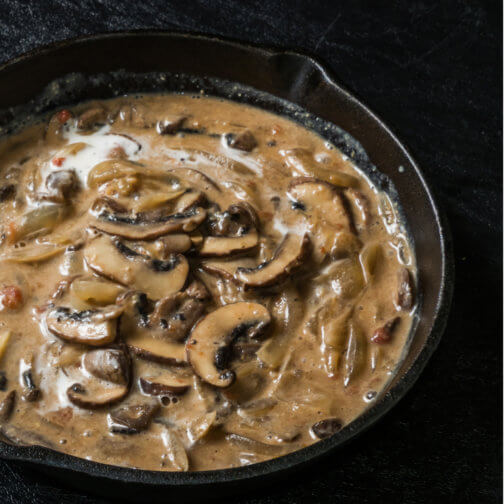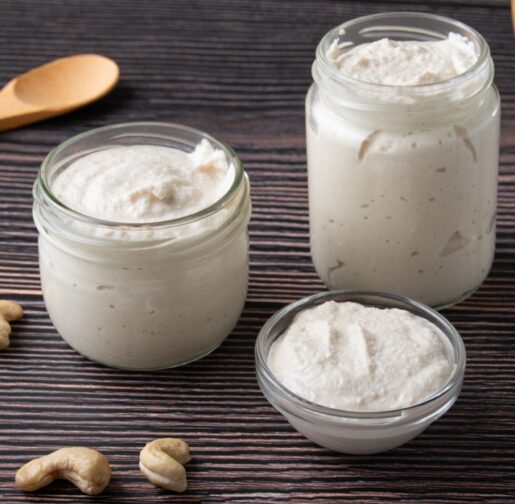
Gut health is no fleeting fad. The more we learn, the more we understand how important it is to overall health. Here’s what you need to know.
Have you ever heard the saying, ‘you are what you eat’? Well, it’s probably more accurate to say you are what your gut microbes eat. Your body contains over 100 trillion microorganisms that live predominantly in your gastrointestinal tract. About 99 percent of these are bacteria; the rest are viruses, fungi, archaea, and protozoa. Your body contains more of these microorganisms than all the human cells that make you, well, you. Therefore, it makes sense that all these tiny microbes in your gut – your microbiota – have a huge impact on your health.
Your microbiota can control how you digest foods, they stimulate your immune system to break down toxic food compounds, and they synthesise vitamins and amino acids. The bacteria in your gut can also determine which of your genes are turned on or off and if you are a healthy or an unhealthy weight. They influence your hormones, skin health, and even how you feel. While researchers still have much more to learn about these microorganisms, they do know that gut microbes are key to many aspects of health.
DETERMINED BY DIET
Your microbiota can be made up of a variety of bacteria – some promote disease while others promote health. This can be affected by diet, drugs, infections, environment, age, gender, stress, sleep quality, and genetic features. We have little control over some of these, but, luckily, the most influential factor in determining what bacteria live in your gut is your diet. Generally, when everything is in harmony (or homeostasis), the gut bacteria form a symbiotic relationship with the human they reside in, meaning both species benefit.
However, poor diet choices can lead to something called dysbiosis, which happens when the gut microbiome becomes disrupted (the bad guys take over). Refined sugars (including artificial sweeteners like sucralose, aspartame, and saccharin), excessive quantities of protein, high levels of saturated fat, inadequate fibre intake, and foods that produce TMAO (like red meat, eggs, and dairy products) can all damage your microbiome and lead to disease. More on TMAO later. Stress, illness, obesity, and antibiotic use can also cause dysbiosis. This imbalance of good and bad gut bacteria has been linked to digestive issues such as IBS (irritable bowel syndrome), SIBO (small intestinal bacterial overgrowth), candida, constipation, and diarrhoea.
Foods to focus on to balance gut bacteria include those high in fibre and antioxidants, along with prebiotic foods. Prebiotics are compounds in certain foods that help induce the growth of beneficial bacteria (the good guys). Prebiotic foods include garlic, onions, leeks, asparagus, artichokes, dandelion greens, unripe bananas, seaweed, and many others. These types of food should be included in your diet daily. The big takeaway here is that a healthy diet consisting of a variety of whole plants every week will help you maintain a healthy gut microbiome.
ANIMAL-BASED VERSUS PLANT-BASED
Remember TMAO? Well, the consumption of animal products, in particular meat, eggs, and dairy, results in your gut bacteria producing something called TMAO (trimethylamine N-oxide). TMAO blocks your arteries and can lead to cardiovascular diseases.
Eating a plant-based diet does something quite different. Studies have found that vegans have a diminished capacity to produce TMA (trimethylamine), which is the precursor to TMAO.
Diets high in animal products – along with those high in processed foods, alcohol, and sugar — are also linked to gut microbiota that encourage inflammation. These imbalances in the gut can lead to chronic diseases such as diabetes, arthritis, heart disease, and lupus. Furthermore, the quantity and quality of the fat you consume can have a significant impact on your gut microbiota composition. For example, the monounsaturated and polyunsaturated fats found in nuts, particularly walnuts, improve the gut microbiota, whereas the saturated fats found almost exclusively in animal sources increase bad bacteria, which is inflammatory for your body.
Studies have shown that people eating a plant-based diet have a very different microbiota to omnivores. Plant-based eaters have more of the health-promoting bugs when compared with meat eaters, who have more of the disease-promoting bugs. Plant-based diets also lead to a more diverse microbial system and improved immunity due to the generally higher intakes of fibre. Your gut health can even determine your immune health because 70 percent of your immune system lives in your gut.

Probiotic foods. Image: Danijela Maksimovic on Shutterstock
SUPERPOWER SHORT-CHAIN FATTY ACIDS
Fibre is often considered a ‘waste’ product that comes along with the food we eat. Insoluble fibre found in nuts, beans, and vegetables does indeed help to bulk up your bowel movement and keep things moving. Soluble fibre found in things like oats, rice bran, citrus fruits, and potatoes absorbs water and forms a gel-like substance, helping things to move smoothly. However, fibre is certainly not just waste, in fact, it is fundamental to our overall health. The fibre found in plants ensures that we have a healthy and diverse microbiome and, importantly, this dietary fibre is found exclusively in plants. Animal products are almost entirely devoid of fibre.
When we consume fibre from plant sources, the non-digestible carbohydrates enable our gut bacteria to produce short-chain fatty acids (SCFAs). SCFAs are produced by your intestinal microbiome as a result of the fermentation of fibre. It’s important because these fatty acids improve your gut health by protecting against inflammation – reducing the risk of colorectal cancer – and maintaining your intestinal barrier, immune function, metabolism, and homeostasis of your central nervous system. They also play a pivotal role in the gut-brain crosstalk because SCFAs can cross the blood-brain barrier, with some preliminary studies linking them to mood and mental health.
PLANT DIVERSITY IS KEY
The American Gut Project, the largest study to date of the human microbiome, found that people who regularly consume more than 30 different types of plant foods per week (including fruits, vegetables, grains, legumes, nuts, seeds, herbs, and spices) have a significantly more diverse microbiome than those eating 10 or fewer different plant foods per week. To increase diversity in your diet, try a new plant food every week and aim to eat more diverse meals. You might try adding extra herbs or spices tova meal, several types of beans or lentils rather than just one kind, or using a mix of quinoa and rice to go with your curry, stir-fry, or Buddha bowl.
If you’re feeling inspired to focus on your gut health as a way to improve overall heath, here are my top tips for you:
- Eat at least 30 different plants every week.
- Increase your fibre intake to 30–40 grams per day.
- Aim to focus your diet on whole plant foods.
- Consume prebiotic and probiotic foods.
- Eat less processed foods and sugars (including artificial sweeteners).
- Avoid animal products.
- Don’t consume excessive amounts of protein.
- Keep well hydrated with water.
- Manage stress.
- Exercise consistently.
- Try to get 6–8 hours of sleep every night.
- Only use antibiotics when necessary.
- Cut down your alcohol consumption.
- If you smoke, quitting is the best option.
Lead image: Maridav on Shutterstock





















